Over the last few years, trophy hunting has almost become a dirty word, garnering plenty of negative media coverage. Even some hunters have jumped onboard the demonisation of trophy hunting, joining the animal rights activists and anti-hunters in their quest to have it banned. But is trophy hunting evil? Or does it play a vital role in wildlife conservation?
How trophy hunting became unpopular
It is easy to accept that animal rights activists, anti-hunters and vegans oppose trophy hunting. It’s even easy to understand why. Their ideology opposes the death of any animal for any reason.
But how did everyone else get whipped up into a frenzy and co-erced into joining the anti-trophy hunting witch hunt? Considering around 90 percent of the world’s population eat meat – and therefore, are morally okay with an animal dying – it is bewildering how many people despise trophy hunting and believe that trophy hunting is evil.
In recent years, even other hunters have thrown trophy hunters under the bus. You’ve all heard other hunters say: “I hunt for meat, but trophy hunting is evil.” or “You can’t eat bone.”
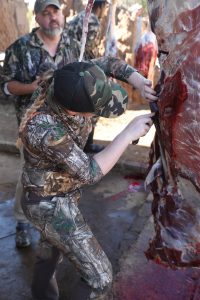
Both of these opinions grossly underestimate the role trophy hunting plays in herd management and wildlife conservation.
What is a trophy?
Wikipedia defines a trophy as a tangible, durable reminder of a specific achievement that serves as recognition or evidence of merit.
The word trophy originates from the Greek word tropaion, which referred to arms, standards, property or body parts of humans captured in battle.
While we no longer take trophies in modern warfare, trophies are still a massive part of modern society and have, in fact, become symbols of success and wealth.
From sporting competitions to expensive designer items, we still amass trophies to show the world how successful we are.
Sure, some of these are just cheap trinkets to celebrate sporting prowess, but most homes have some form of animal trophy.
A prized leather sofa, a designer leather handbag, an expensive pair of leather shoes, luxurious leather seats in a car, a fur coat, a pair of Ugg boots, a goose down pillow…

Do you see where I’m going with this?
Most homewares stores have trophies for sale – and not just leather. You can now buy taxidermied deer and animal mounts to hang on your wall, or soft furnishings made from fur or hides.

Designer brands charge a premium for their handbags, shoes and clothing, particularly if it has exotic animal skins, furs and animal parts stitched into it.
We accept these ‘trophies’ as normal, even acceptable, parts of life, which just makes the furore over trophy hunting seem all the more hypocritical.
How can it be okay to pay someone else to kill your trophy for you but not okay for you to do it yourself?
Trophy hunting – a rose by any other name
Some hunters have proposed a supposedly simple solution to the current debate. Hunters should just change the terminology that we use. Don’t call it trophy hunting. Call it something else.
Another proposed solution is not to post hunting photos on social media, as these have often been used as the basis for hate campaigns against trophy hunters.
They think that by taking the focus off a word that’s grown negative, or by not showing people what we do, they will stop trying to ban hunting.
Unfortunately, that solution fails to recognise that a trophy hunting ban is only the first step in the animal rights activists’ ultimate goal – the complete ban of any animal use whatsoever. That includes ALL hunting and ALL animal products.
That isn’t a conspiracy theory. It is a clearly stated goal of most animal rights organisations. The Animal Justice Party in Australia have a goal to end all animal deaths at the hands of humans, and to end all animal exploitation. For them, there is no middle ground or compromise. They want to end all hunting, all animal products (even non-meat ones), they want to see an end to all animal industries. They even want to force you to get rid of your pets because they believe those animals are kept in slavery.
So unless you are ready to embrace their whole agenda, we all need to carefully consider what support we lend such extremists by capitulating to their demands.
Simply banning the word trophy hunting also fails to recognise that – in its purest sense of the word – all hunting is a form of trophy hunting. Whether you take a photo, a skin, a set of antlers, or even the meat to eat, you are essentially taking a tangible reminder of your achievement.
At the end of the day, trophy hunting has been unfairly demonised. That’s not to say that there aren’t people who do the wrong thing, but that’s true in ALL walks of life – activism included. But there are already laws in place to penalise people who do the wrong thing or break the law.
We can challenge unethical aspects or unsportsmanlike conduct by individuals without throwing the baby out with the bathwater, and disregarding all the good that hunting does.
Hang on. Trophy hunting is good?
Absolutely. Whether here in Australia or overseas, trophy hunting plays a vital role in wildlife conservation.
Society seems to have placed different values on animal lives.
We’re okay with cows, sheep, chickens and pigs dying for our food needs. We can even accept that we use the leather and skins from those animals for other purposes, since essentially they’re bred to be commodities.
Moderate people can even accept that hunting feral and invasive species is a necessary evil.
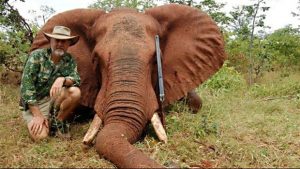
There is nothing honourable in only defending the lives of beautiful and majestic animals. We elevate the worth of a zebra or a giraffe over a sheep or a cow. But isn’t that like saying only beautiful people deserve to live?
If you eat meat, or own animal products, it’s only logical that you would at least be open to hearing the arguments for trophy hunting.
Instead of issuing blanket statements about trophy hunting, let’s look at some of the specifics.
But first, a caveat.
We’re not talking about illegal or unethical hunting. In all instances, we are referring to legal, ethical and regulated hunting that is both sustainable and beneficial to wildlife conservation.
Trophy hunting does not mean that everything else is wasted. Most hunters are ethical just like most people are decent human beings. Most hunters value the life taken, no matter the species. They respect the sacrifice and try to utilise as much of the animal as possible, including the meat, as a sign of this respect. Animals don’t taste different because they look nice on the wall. Hunters know this. In fact, in some countries like America, it is illegal not to take the meat from a hunt.
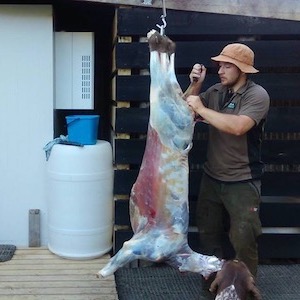
Trophy hunters are dedicated, paying conservationists. No hunter wants to see a species eradicated (though the same cannot be said for many Green-based political groups who are vocal about their eradication plans). Instead, they participate in tag systems and/or they pay trophy fees far in excess of the amounts that could be raised through any other form of tourism. This means money. Money that hunters invest every year. This is spent on habitat protection, scientific research, anti-poaching patrols and employment for local people. It is hunters’ money that ensures the survival of big game species for years to come.
You only have to look at the positive impact trophy hunting has had on the endangered markhor.
Or how trophy hunting has resulted in a 4200 percent increase in wildlife populations in South Africa.
North America is considered the most successful conservation model in the world, and their wildlife conservation is based on recreational hunting and trophy hunting.
In Australia, where most of our game species were introduced, hunting plays an important role in managing wildlife numbers and protecting our native environment.

Don’t be fooled by the propaganda. So-called animal rights activists do little to support true conservation. When given opportunities to actually do something practical to save wildlife, they go missing in action, as they did when they were offered a chance to save a rare, black rhinoceros or 10 Angolan giraffes. Instead, they shout loudly and take donations to start shelters where more animals are euthanised than re-homed.
Make up your own mind. We’ve provided some resources below if you want to look deeper at the conservation efforts paid for by hunting.
If you have any thoughts, feel free to email us at team@huntshack.net
Resources and links
- North American Model of Wildlife Conservation
- “These sport hunters organized and developed the first refuges for wildlife (Carroll’s Island Club 1832, Gunpowder River in Maryland; Trefethen 1975) and laws to protect game (e.g., New York Sportsmen’s Club 1844; Trefethen 1975).”
- Interior Secretary Ryan Zinke announces more than $1.1B raised for conservation by sportsmen and women
- “Every time a firearm, fishing pole, hook, bullet, motor boat or boat fuel is sold, part of that cost goes to fund conservation. The best way to increase funding for conservation and sportsmen access is to increase the number of hunters and anglers in our woods and waters. The American conservation model has been replicated all over the world because it works,”
- SCI Conservation Highlights
- “Safari Club International (SCI) Foundation’s conservation achievements would not be possible without hunters. Hunters provide the vision of this organization and they invest countless resources into its programs. Through SCI Foundation, hunter contributions collectively provide science on nearly all the big game mammals of North America and as many game animals as resources allow on other continents.”
- Balanced articles on the trophy hunting debate:
What is I Am Hunter?
I Am Hunter has a lofty goal to change the way hunting is perceived in the community. Hunters can find a wide range of tools and resources to help them improve their skills and become positive role models and advocates for the hunting community.
I Am Hunter is a member-supported website. By paying a small monthly or annual fee, members help keep most of the content free, which in turn helps to spread a positive message about hunting with the wider community.
In return, members enjoy exclusive rewards and benefits including member-only content, discount codes, and giveaways.
Related content
Our other channels
Get our newsletter
Get our free monthly newsletter direct to your inbox
Listen on iTunes
Listen to our podcast on iTunes.
TV series
Watch I Am Hunter episodes on My Outdoor TV (MOTV)
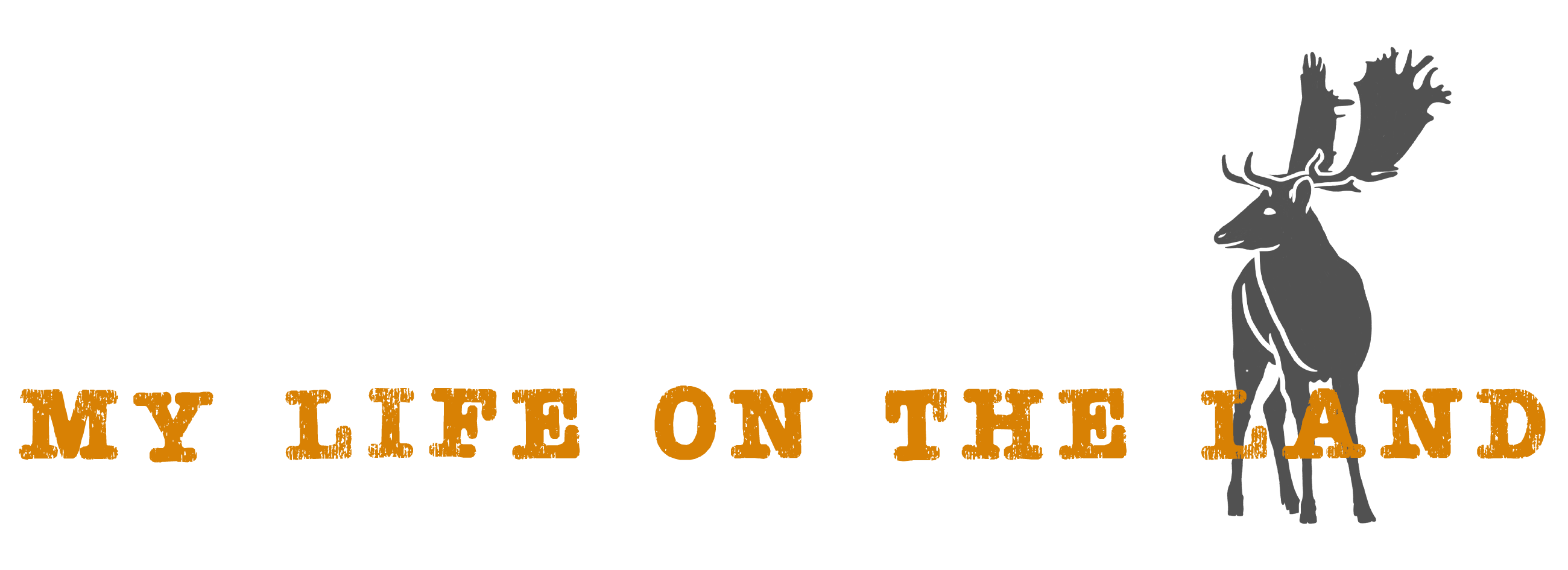
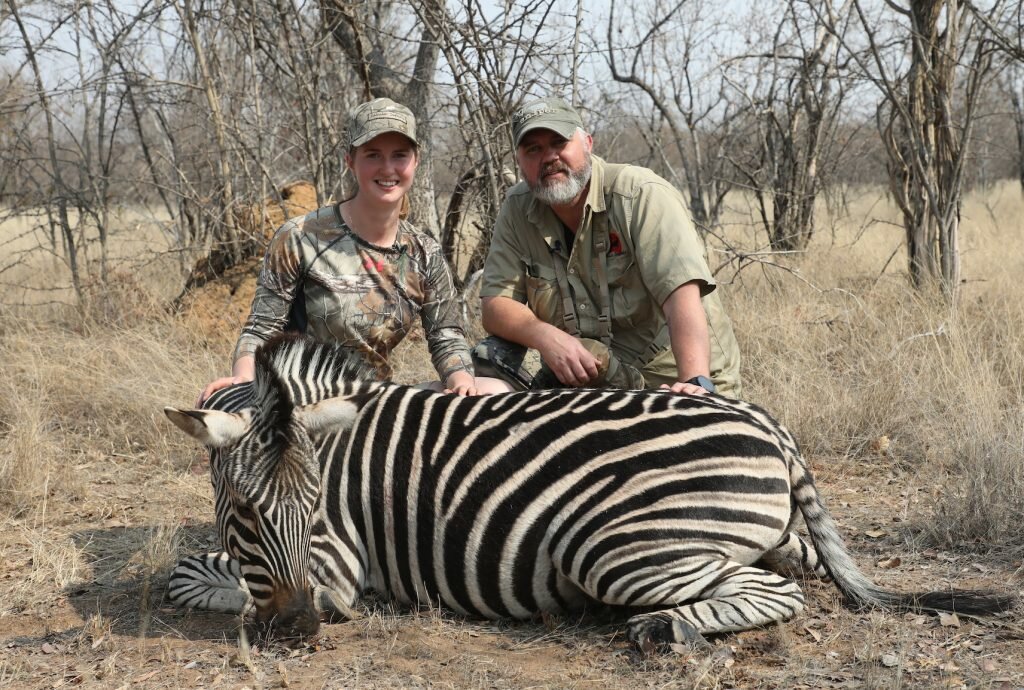
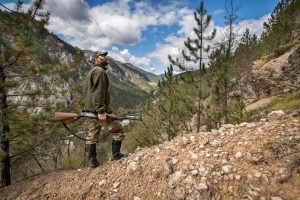
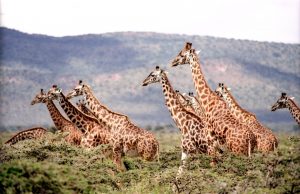

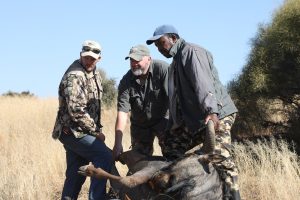

7 thoughts on “Is trophy hunting evil?”